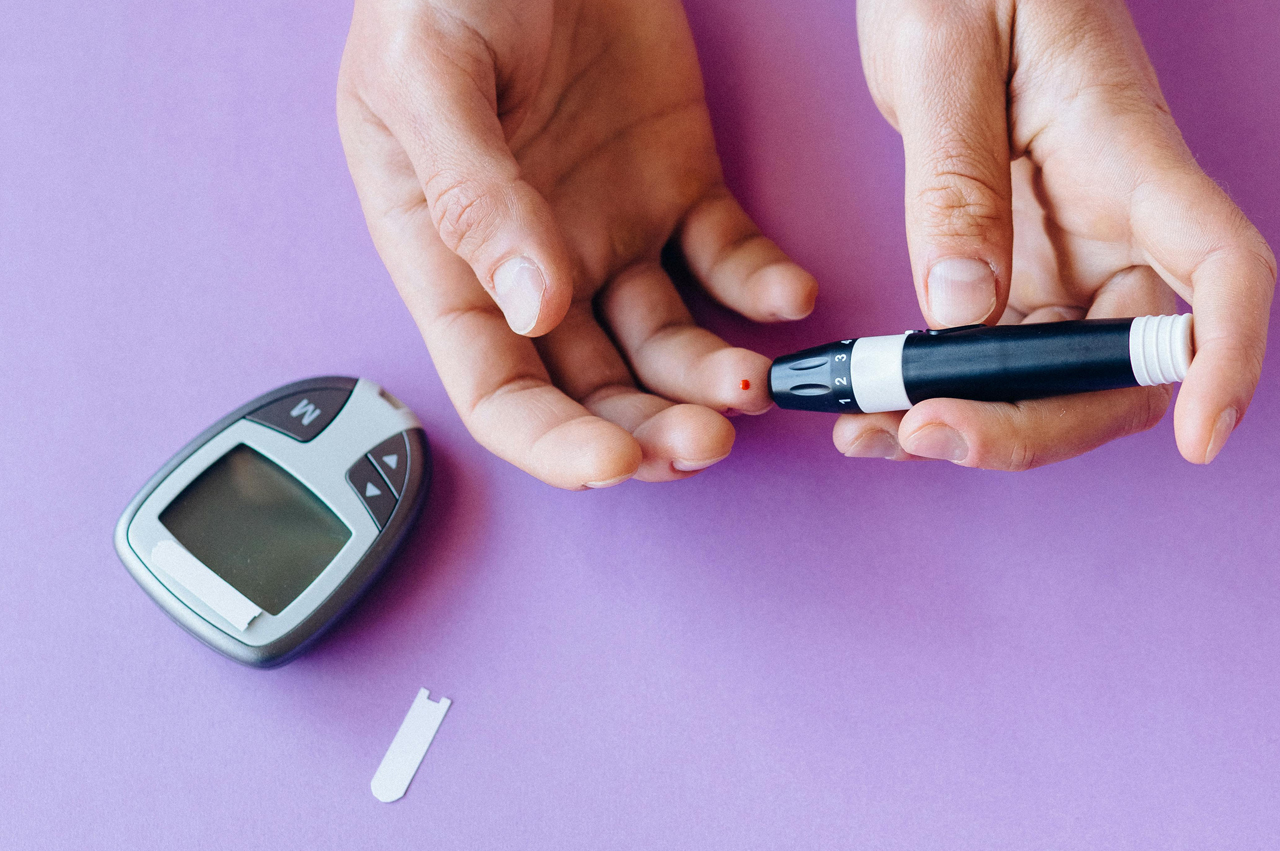Diabetes is a complex chronic condition that affects thousands of people in Charleston, often leading to complications like diabetic neuropathy.
This nerve damage, caused by prolonged high blood sugar levels, can result in pain, numbness, and other neurological symptoms, particularly in the extremities.
While conventional treatments for diabetes and diabetic neuropathy focus on blood sugar control and symptom management, naturopathic doctors, holistic practitioners, and functional medicine practitioners take a more comprehensive approach that addresses the root causes and supports overall health.
Understanding Diabetes and Diabetic Neuropathy
- Type 1 Diabetes: An autoimmune condition where the body’s immune system attacks the insulin-producing cells in the pancreas. Patients require insulin therapy and lifestyle interventions.
- Type 2 Diabetes: A metabolic disorder where the body becomes resistant to insulin or doesn’t produce enough insulin. It is often associated with lifestyle factors such as diet, weight, and physical inactivity.
Both types of diabetes can lead to diabetic neuropathy, a condition caused by high blood sugar levels that damage nerves, most commonly in the legs and feet.
Symptoms of diabetic neuropathy can include pain, tingling, burning, and loss of sensation, which can significantly impact the quality of life.
Naturopathic And Holistic Practitioner Approach to Diabetes and Diabetic Neuropathy
Naturopathic doctors (NDs) approach diabetes and its complications with a focus on natural treatments, lifestyle changes, and long-term disease management.
NDs emphasize prevention, patient education, and personalized care to support the body’s ability to heal and regulate blood sugar levels.
Similarly, holistic practitioners look at the patient’s entire lifestyle, environment, and mental health in managing diabetes and diabetic neuropathy.
Their approach integrates natural remedies, emotional well-being, and lifestyle support to address not only the symptoms of diabetes but also the factors contributing to its progression.
Additionally, functional medicine focuses on understanding the root causes of disease and creating personalized treatment plans based on individual genetic, environmental, and lifestyle factors.
Practitioners of functional medicine take a systems-oriented approach to address the underlying imbalances in the body that contribute to diabetes and neuropathy.
Dietary Interventions
- Low Glycemic Index Diet: Naturopaths often recommend a low glycemic index (GI) diet to help stabilize blood sugar levels. This diet focuses on whole, unprocessed foods like vegetables, legumes, lean proteins, and healthy fats, which are digested more slowly and prevent spikes in blood sugar.
- Anti-Inflammatory Foods: Inflammation is a key factor in both diabetes and diabetic neuropathy. Naturopaths suggest incorporating anti-inflammatory foods like turmeric, ginger, and omega-3-rich fish (such as salmon) to help reduce systemic inflammation and nerve damage.
- Chromium and Magnesium: These minerals are commonly deficient in people with diabetes. Chromium helps regulate blood sugar, while magnesium supports insulin sensitivity and nerve health. Naturopathic doctors often recommend supplementation to correct these deficiencies.
- Whole Foods Diet: Holistic practitioners encourage a diet rich in whole foods, such as organic vegetables, lean proteins, and healthy fats. They emphasize the importance of eliminating processed sugars and refined carbohydrates that contribute to blood sugar spikes.
- Gut Health and the Microbiome: Functional medicine often addresses gut health as a critical factor in managing diabetes. An unhealthy gut microbiome can contribute to insulin resistance and inflammation. Probiotics, prebiotics, and a gut-healing protocol
Herbal Medicine
- Berberine: This plant compound is frequently used in naturopathic medicine to improve insulin sensitivity and lower blood sugar. Research has shown berberine to be as effective as metformin in some cases, a common drug for managing Type 2 diabetes.
- Alpha-Lipoic Acid: Known for its antioxidant properties, alpha-lipoic acid (ALA) is used tosupport nerve health and reduce symptoms of diabetic neuropathy, such as pain and tingling.
- Herbs and Spices for Blood Sugar Balance: Cinnamon, fenugreek, and bitter melon are commonly used to improve insulin sensitivity and balance blood sugar levels naturally. Holistic practitioners may recommend these as part of a personalized diet plan.

Lifestyle Modifications
- Exercise: Regular physical activity is key to managing blood sugar levels and improving insulin sensitivity. Naturopaths create personalized exercise programs for patients that take into account their physical capabilities and neuropathy-related limitations, encouraging gentle activities like walking, swimming, or yoga.
- Mind-Body Practices: Stress management is crucial in managing diabetes, as stress hormones can raise blood sugar levels. Practices like yoga, meditation, and breathing exercises help regulate the nervous system and reduce stress.
- Sleep: Your body regenerates during sleep, so sleep is vital to cell repair.
Mind-Body Connection
- Emotional and Mental Support: Managing the psychological and emotional aspects of diabetes is key in holistic care. Practitioners may offer or suggest therapies like counseling, journaling, or energy healing techniques (such as Reiki) to address stress, anxiety, and depression, which are common in people managing chronic conditions.
- Energy Work: Reiki and chakra cleansing is used in holistic practices to support blood flow, reduce nerve pain, and promote overall balance in the body. It can be particularly beneficial for reducing the symptoms of diabetic neuropathy by promoting healing and nerve regeneration.
- Bach Flower Remedies: Custom Bach flower mixes balance emotions through the essence of flowers, safely and effectively. Bach flowers can work to realign feelings associated with diabetes and diabetic neuropathy, like stress, anxiety, low confidence, and procrastination.
Detoxification and Organ Support
- Liver and Kidney Support: Since diabetes and its complications often strain the liver and kidneys, holistic practitioners may suggest detoxification protocols to support these organs. Milk thistle, dandelion root, and burdock root are often used to enhance liver function, while herbs like nettle and parsley support kidney health.
- Pancreas Support: Insulin is made in the pancreas, so herbs and supplements, such as chromium and goldenseal, that support pancreatic function would benefit someone with diabetes.
- Nerve and Circulatory Support: Diabetics often struggle with neuropathy and circulation issues. Supplement rich in whole foods, vitamins, and herbs can support blood flow and nerve transmission. Such support could include cayenne pepper, hawthorn, and garlic.
- Low-Toxin Environment: Functional medicine often considers environmental toxins, such as heavy metals and endocrine disruptors, as contributors to diabetes. Detoxification strategies, including infrared sauna therapy and chelation, may be used to reduce the toxic load and improve insulin sensitivity.
- Mitochondrial Support: Since mitochondrial dysfunction can contribute to diabetic complications, including neuropathy, functional medicine practitioners often recommend supplements like CoQ10, acetyl-L-carnitine, and B vitamins to improve cellular energy production and nerve repair.
In the End…
Naturopathic doctors, holistic practitioners, and functional medicine practitioners all provide integrative approaches to managing diabetes and diabetic neuropathy that go beyond conventional medicine.
By focusing on diet, lifestyle, natural remedies, and addressing the root causes of the disease, these practitioners empower patients to take control of their health.
Whether through dietary interventions, stress reduction, herbal support, or advanced testing, these practices offer patients a comprehensive and personalized plan to manage their condition, reduce complications, and improve their quality of life.




